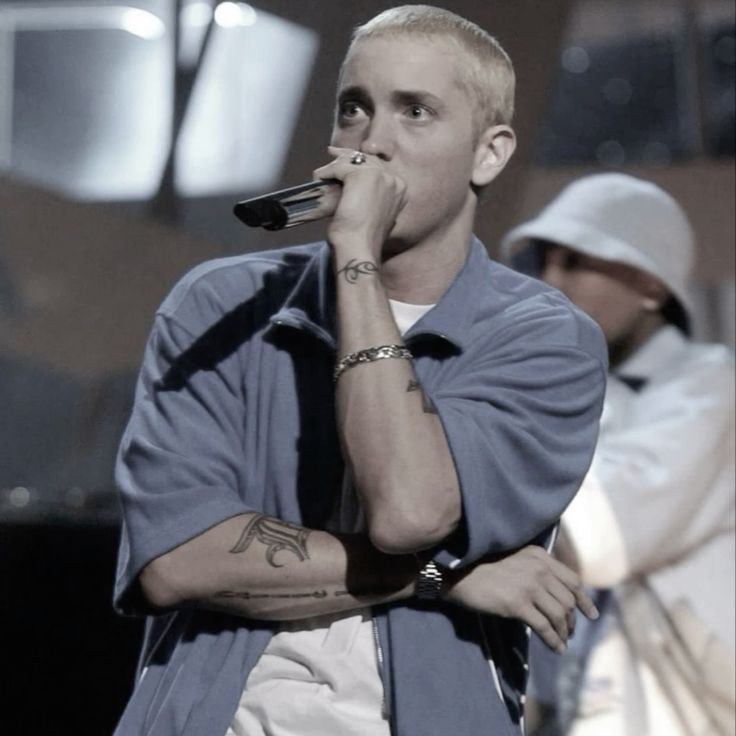

Eminem, born Marshall Bruce Mathers III on October 17, 1972, is one of the most iconic and influential rappers of all time. Known for his sharp lyrics, intricate rhyme schemes, and powerful storytelling, Eminem has left an indelible mark on the music industry. This blog explores Eminem’s journey from his troubled early life to his rise as a global superstar and his continued impact on the world of hip-hop.
Eminem: Early Life
Eminem was born in St. Joseph, Missouri, and raised in Detroit, Michigan. His childhood was challenging; he faced poverty, bullying, and family issues. His father abandoned the family when Eminem was young, leaving his mother, Debbie, to raise him. Eminem struggled in school and dropped out in the ninth grade after repeating the year several times.
Despite these hardships, Eminem found solace in music, particularly in hip-hop. He began rapping at a young age and participated in local rap battles. His unique style and lyrical prowess quickly set him apart, earning him a reputation in the Detroit underground rap scene.
Eminem: Breakthrough and Early Success
Eminem’s big break came in 1997 when he released the EP “Slim Shady EP,” which caught the attention of Dr. Dre, a famous rapper and producer. Dr. Dre signed Eminem to his label, Aftermath Entertainment, and together they worked on Eminem’s major-label debut album, “The Slim Shady LP,” released in 1999.
“The Slim Shady LP” was a massive success, showcasing Eminem’s alter ego, Slim Shady, a character known for dark humor and controversial lyrics. The album included hits like “My Name Is” and “Guilty Conscience.” It won a Grammy Award for Best Rap Album and established Eminem as a rising star in the music industry.
Eminem: The Rise to Fame

Eminem’s follow-up album, “The Marshall Mathers LP” (2000), propelled him to superstardom. It became one of the fastest-selling albums in U.S. history, with hits like “The Real Slim Shady,” “Stan,” and “The Way I Am.” The album was critically acclaimed and won multiple awards, solidifying Eminem’s place in hip-hop.
He continued to release successful albums, including “The Eminem Show” (2002) and “Encore” (2004). Eminem’s music often addressed his personal struggles, including his tumultuous relationship with his mother, his battles with addiction, and his experiences with fame. His honest and raw lyrics resonated with fans worldwide.
Eminem: Personal Struggles and Hiatus
Despite his success, Eminem faced significant personal challenges. He struggled with addiction to prescription drugs, which affected his health and career. In 2005, after the release of “Encore,” Eminem took a hiatus from music to focus on his recovery.
During this period, Eminem faced various personal losses, including the death of his close friend and fellow rapper Proof. These events deeply affected him and were reflected in his later music. After seeking treatment and overcoming his addiction, Eminem made a strong comeback.
Comeback and Continued Success

Eminem returned to the music scene with the release of “Relapse” (2009) and “Recovery” (2010). “Recovery” was particularly well-received, featuring hits like “Not Afraid” and “Love the Way You Lie.” The album showcased Eminem’s growth as an artist and his renewed focus on positive messages and personal reflection.
He continued to release successful albums, including “The Marshall Mathers LP 2” (2013), “Revival” (2017), “Kamikaze” (2018), and “Music to Be Murdered By” (2020). These albums demonstrated Eminem’s continued relevance in the rap industry and his ability to adapt to changing musical trends.
Legacy and Influence
Eminem’s impact on the music industry is undeniable. He has sold over 220 million records worldwide, making him one of the best-selling music artists of all time. Eminem has won numerous awards, including 15 Grammy Awards, and has been credited with breaking down racial barriers in hip-hop.
His influence extends beyond music. Eminem’s candid discussions about addiction, mental health, and personal struggles have opened up conversations and provided support for many fans facing similar issues. He is also known for his rapid-fire delivery and complex rhymes, which have set a high standard for lyrical excellence in rap.
Leave a Reply